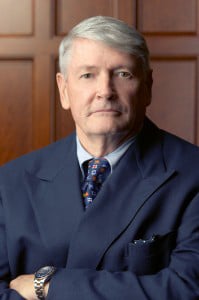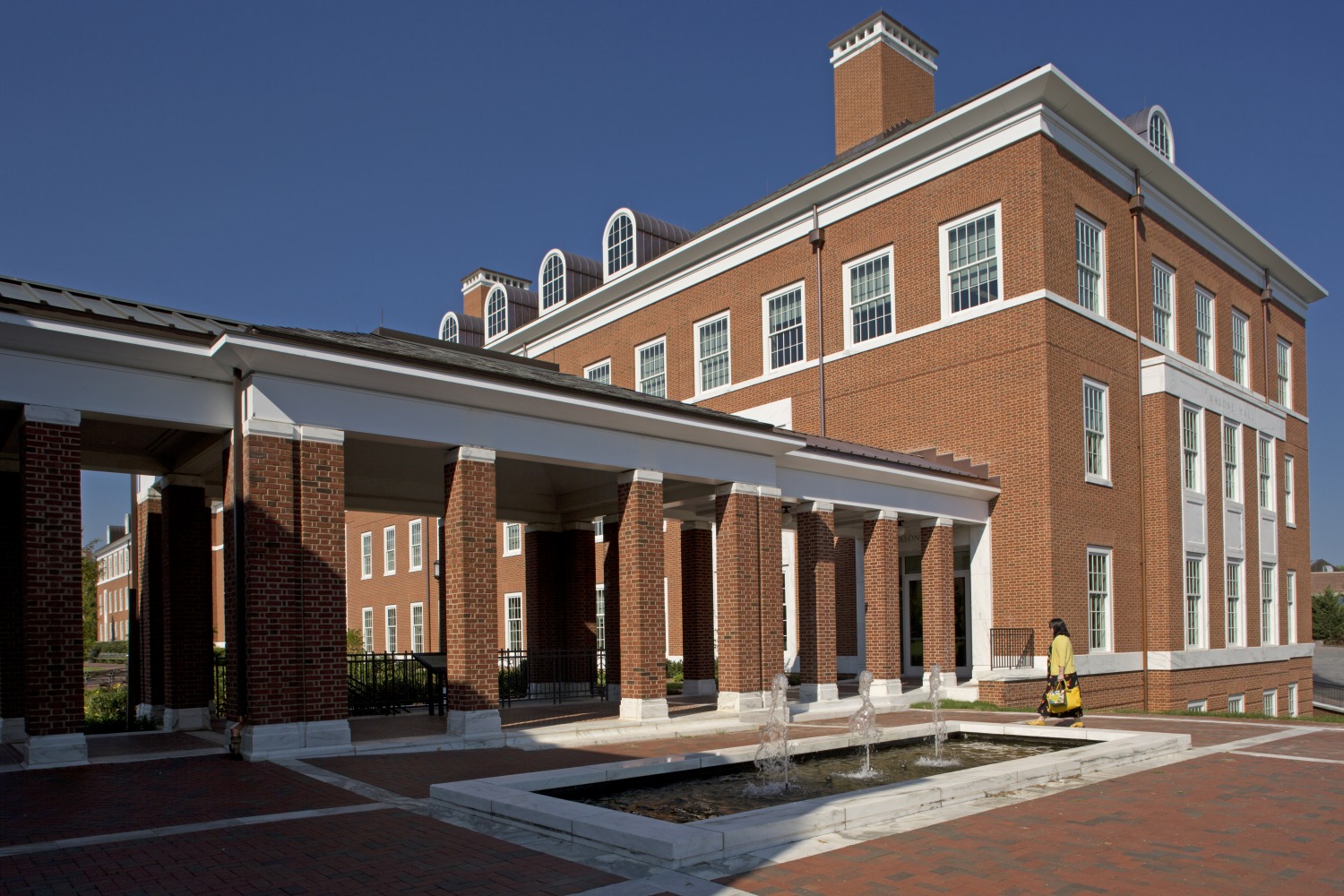 JOHN C. MALONE earned a Master of Science degree in industrial management from The Johns Hopkins University in 1964, followed by a doctorate in operations research five years later, both from the School of Engineering. He received his undergraduate degree from Yale University in 1963.
JOHN C. MALONE earned a Master of Science degree in industrial management from The Johns Hopkins University in 1964, followed by a doctorate in operations research five years later, both from the School of Engineering. He received his undergraduate degree from Yale University in 1963.
Widely recognized as a pioneer in communications and media, Dr. Malone is chairman of Liberty Media Corporation and Liberty Global Inc. The interests of Liberty Media include QVC, the Atlanta Braves, and Sirius XM Radio Inc. Liberty Global provides broadband distribution services and video programming services to subscribers in Europe, Latin America, and Australia. Dr. Malone is chairman emeritus of Cable Labs and a member of the boards of Ascent Media, the Cato Institute, Discovery Communications, Expedia Inc., and Live Nation Entertainment. He was chief executive officer of Tele-Communications Inc. from 1973 to 1999, when TCI merged with AT&T.
In 2010, Dr. Malone donated $30 million to the G.W.C. Whiting School of Engineering for the construction of Malone Hall. In 2016, the Malone Center for Engineering in Healthcare was established to promote the use of engineering methods to improve healthcare. The Malone Center is a visionary effort to bring together engineers and clinicians from Whiting School of Engineering and Johns Hopkins Schools of Medicine, Nursing, and Public Health, so they can produce new technologies that will have a significant impact in real healthcare settings.
Dr. Malone has long believed in the promise of improving health care by connecting engineering technologies with medical advances and has made a commitment to providing endowed professorships to faculty members who are improving healthcare.
The mission of The Malone Center for Engineering in Healthcare is to catalyze and accelerate the development of research-based innovations that advance the effectiveness and efficiency of health care.
To increase the efficiency and consistency of healthcare new technologies will be needed to collect, store, and analyze complex data taken from a wide variety of sources – from traditional EHRs, to streaming data from medical devices, and ultimately data from emerging mobile systems. Through advances in data analytics and machine learning, it will then become possible to simultaneously model and optimize the operation of a healthcare organization, and it will become possible to identify areas of high variability in outcomes and seek decision-support solutions to support caregivers. Using advances in user-centered design, cross-disciplinary, clinician-engineering teams will produce solutions powered by cloud architectures.
We will catalyze these changes by concentrating a broad range of engineering expertise on real emergent opportunities in healthcare, and accelerate them by facilitating the deployment and optimization of solutions to have a real impact on this national priority. Through strategic, focused collaborations among engineering researchers and healthcare providers we will produce tools for 21st century healthcare systems that will improve patient care, enhance care-provider effectiveness, and increase the efficiency of the healthcare environment as a whole.
Ultimately, we envision networks and systems that are so fully integrated efficient, effective, and consistent that no patient will receive a different diagnosis, treatment, or outcome dependent on which hospital or clinic they visit.
Our strategy is to create cross-disciplinary, clinician-engineering teams to identify research-based innovations to improve efficiency and effectiveness of diagnosis and treatment, reduce harm and adverse events, and promote patient and provider usability and satisfaction. Our faculty are working to innovate in four focus areas:
• Smart Devices and Systems for Health Care
Creating devices and associated computational and/or information analytics that enhance care in the critical environment
• Modeling and Optimization for Health Care Delivery
Exploiting traditional and new sources of data to create tools that enhance the diagnosis, delivery, and quality of health care
• Mobile Health and Healthy Living
Developing innovations that support individuals outside traditional care environments, that enhance health in everyday life, and that augment traditional health care approaches
• Precision Medicine
Emphasizing innovative approaches to health care, ranging from computational predictions of patient outcomes to technologies for individualized treatments
 JOHN C. MALONE earned a Master of Science degree in industrial management from The Johns Hopkins University in 1964, followed by a doctorate in operations research five years later, both from the School of Engineering. He received his undergraduate degree from Yale University in 1963.
JOHN C. MALONE earned a Master of Science degree in industrial management from The Johns Hopkins University in 1964, followed by a doctorate in operations research five years later, both from the School of Engineering. He received his undergraduate degree from Yale University in 1963.